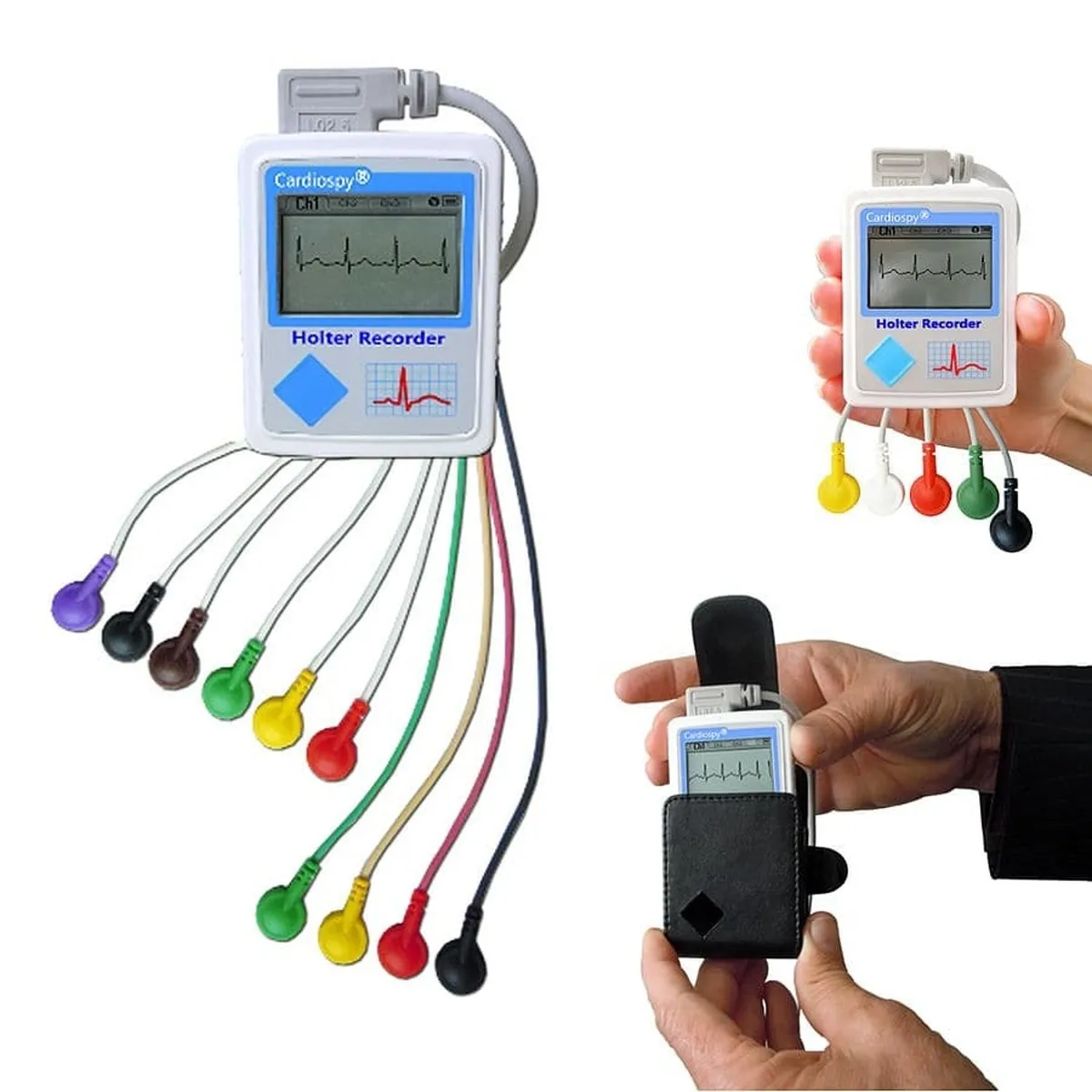Iranian Company Produces Holter Monitor to Help Patients in Remote Areas

A Holter monitor is a small, wearable device that records the heart's rhythm. It's used to detect or determine the risk of irregular heartbeats (arrhythmias). A Holter monitor test may be done if a traditional electrocardiogram (ECG or EKG) doesn't provide enough details about the heart's condition.
Ezzatoleh Almasi, the managing director of the knowledge-based company, which is producing the holter monitor, was representing their company in AbadIran exhibition.
The exhibition dubbed "AbadIran" kicked off in Tehran on Tuesday June 13. It was held by the Iranian Vice Presidency for Science and technology with the aim of introducing the capabilities of knowledge-based companies to eradicate poverty in under-developed areas across the country.
“This new device was made for the diagnosis and monitoring of patients with heart diseases in underdeveloped remote areas in the country. This company has been working in the field of medical services for many years,” Almasi told ANA correspondent on the sidelines of AbadIran exhibition.
Stating that the holter cardiology device has other Iranian counterparts, the researcher added, “The difference between this device and other heart-monitoring devices is that it provides services through virtual space using an internet platform, and it is used for remote areas in the country where a cardiologist is not available.”
Pointing out that the Holter device records the heart's electrical activity for 24-48 hours, Almasi added, “A specialist doctor can find out the type of problem and a way to treat it using this device.”
He noted that in big cities the patients have access to doctor and the hospitals, but in small cities and underdeveloped areas where there are no specialists, this device is employed by a general practitioner in a medical center and it monitors and records patient's heart electrical activity for 24-48 hours, and after that the ECG is sent to specialists to analyaze it.
According to the researcher after the specialists see the patients' records, they can go to the cardiologist if necessary.
He added the device makes it possible for the patients no to go to the doctors in big cities as the doctors can prescribe medicne for them from far away and they do not have to travel there in person.
About the competetive advanatge of their product as compared to foreign-made counterparts, he pointed to its much lower prices as compared to he imported ones.
Almasi also noted that Iran's Vice-Presidency for Science and Technology assisted them in mass producing their device.
4155/i





















